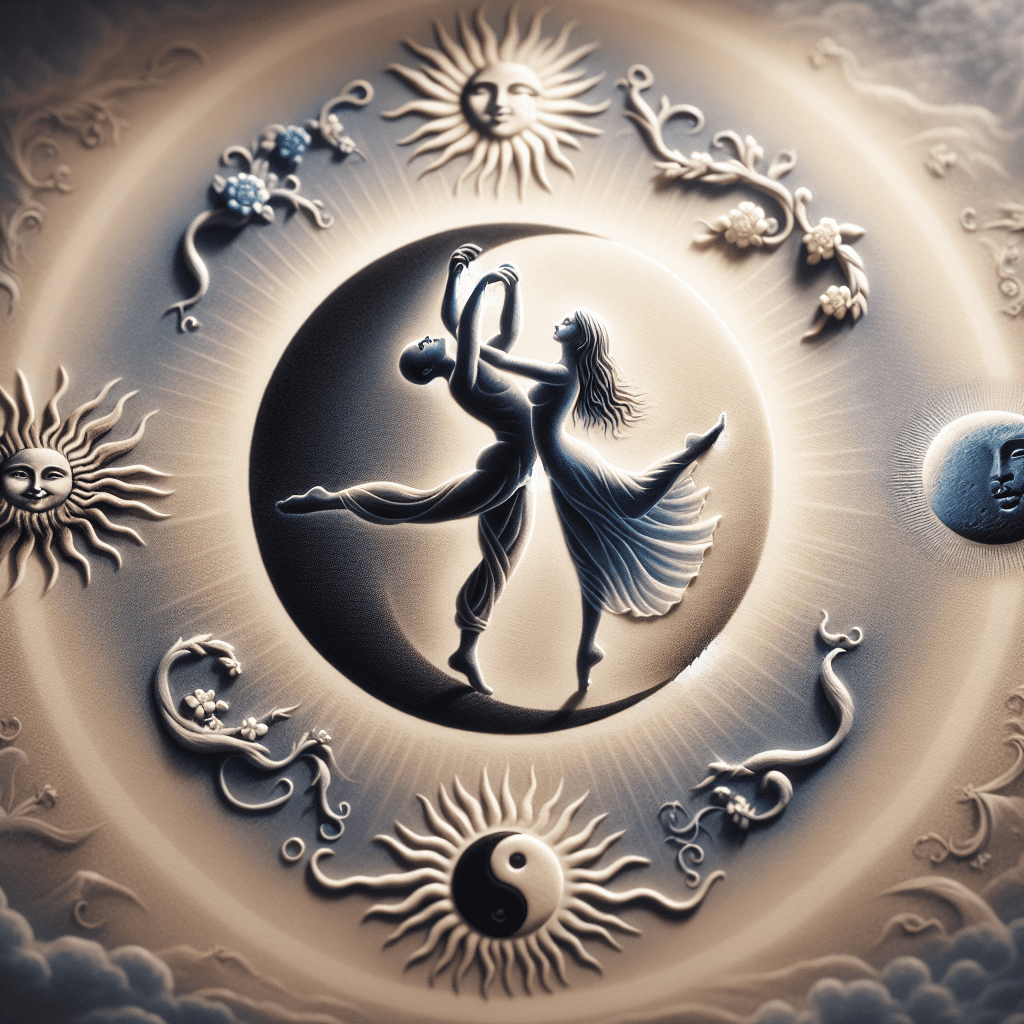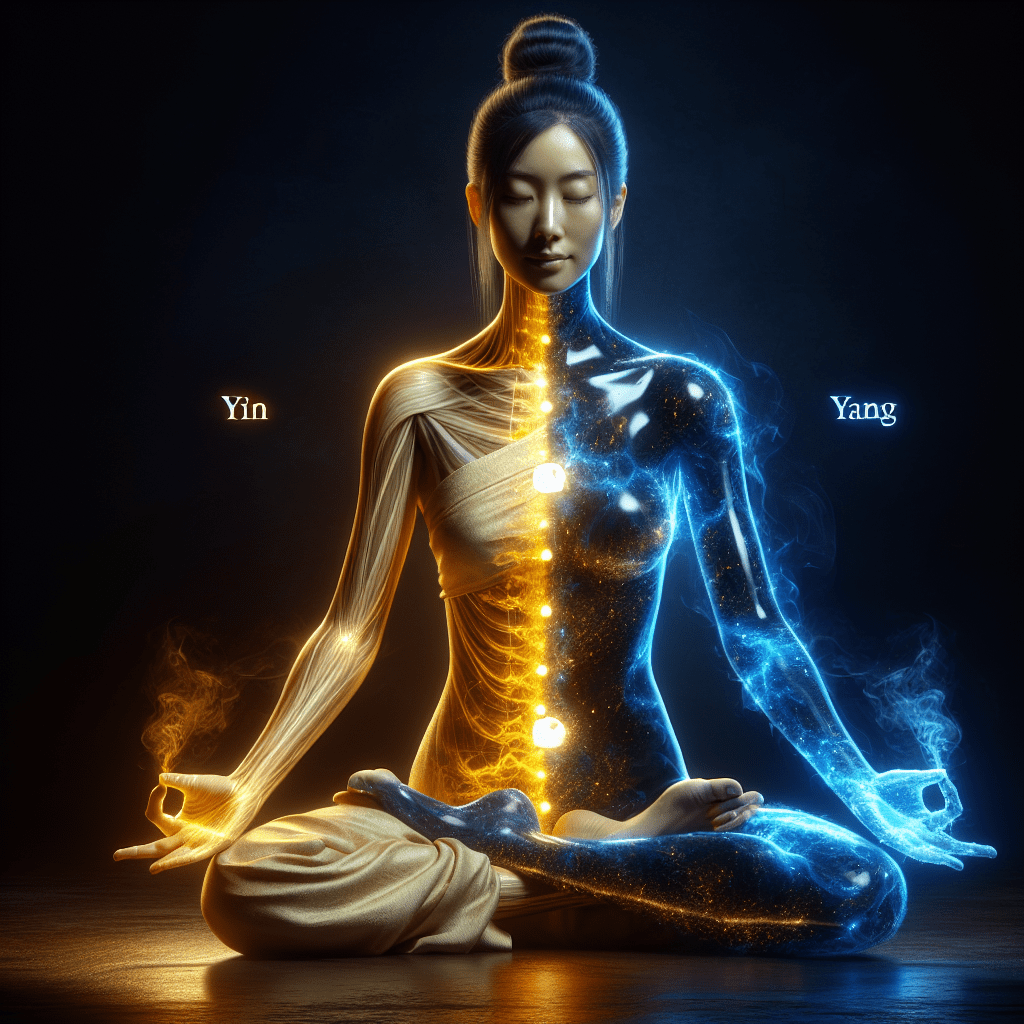Ever feel like you’re constantly running on a treadmill that never stops? In today’s fast-paced world, we’re bombarded with endless notifications, deadlines, and social pressures that leave little room to breathe. It’s no wonder so many of us feel mentally exhausted, anxious, or simply out of sorts. The constant hustle culture has us believing we should always be “on” – productive, positive, and perfect. But what if this pursuit of non-stop activity is actually throwing our mental wellness completely off-balance?
Ancient Eastern wisdom has something powerful to teach us about this modern dilemma. Long before smartphones and burnout became everyday realities, Chinese philosophers developed the concept of Yin and Yang – a profound understanding of balance that might just hold the key to the balanced mental wellness we’re desperately seeking today.
Understanding Yin-Yang: Ancient Wisdom for Modern Minds
Think of Yin-Yang as the original wellness framework – one that’s stood the test of time for over 2,000 years! This concept isn’t complicated once you break it down. Yin and Yang represent complementary forces that exist in everything around us and within us too. Understanding the difference between Yin and Yang is fundamental to applying this wisdom to your wellbeing.
Yin energy embodies qualities like stillness, reflection, rest, coolness, receptivity, and emotional depth. It’s the quiet wisdom of the night, the restorative power of sleep, and the gentle act of turning inward. Yang, on the other hand, represents activity, productivity, warmth, expression, rationality, and outward energy. It’s the brightness of day, the energy of movement, and the drive to achieve.
In Chinese medicine and philosophy, neither Yin nor Yang is considered “better” – both are equally necessary and valuable. Health and harmony come from maintaining a dynamic balance between these opposing yet complementary energies. When it comes to mental wellness specifically, this ancient framework offers refreshing insights that many modern approaches miss.
Emotional Balance: Beyond Toxic Positivity
One of the most liberating aspects of the Yin-Yang approach to mental wellness is how it views emotions. Unlike some modern wellness trends that emphasize constant positivity (hello, toxic positivity!), the Yin-Yang perspective recognizes that all emotions – both comfortable and uncomfortable – have purpose and value.
Yang emotions might include joy, excitement, and enthusiasm, while Yin emotions encompass sadness, contemplation, and stillness. From this Eastern viewpoint, constantly pushing away “negative” emotions creates imbalance. Instead, balanced mental wellness comes from acknowledging and integrating our full emotional experience.
“Becoming aware of how Yin and Yang energies apply to your mental health is key to helping you shift them back into a harmonious balance,” explains practitioners of Traditional Chinese Medicine. This means giving yourself permission to feel sad when that’s authentic, to rest when you’re tired, and to set boundaries when you’re overwhelmed – not just pushing through with forced positivity.
Research increasingly supports this balanced approach. Studies show that emotional suppression and avoidance can actually worsen mental health outcomes, while acceptance and integration of diverse emotional experiences promotes resilience and psychological flexibility – exactly what the Yin-Yang model for balanced health and wellness has suggested for millennia.
Embracing Yin for Mental Restoration
In our Yang-dominant culture that glorifies hustle, productivity, and constant action, many of us suffer from severe Yin deficiency. We’re taught to power through fatigue, “fix” negative emotions, and stay busy at all costs. But according to Eastern wisdom, this imbalance eventually leads to burnout, anxiety, and disconnection – problems that have reached epidemic proportions today. Exploring what Yin energy truly is can help us recognize when we need to cultivate more of this restorative force.
Cultivating Yin qualities is essential for balanced mental wellness. Here are some practical ways to restore this vital energy:
Mindful meditation: Even 5-10 minutes daily of quiet sitting can help replenish depleted Yin energy. Focus on your breath and allow thoughts to come and go without judgment.
Restorative sleep: Prioritize quality sleep by creating bedtime rituals that signal to your body it’s time to rest.
Reflective journaling: Writing without purpose or structure helps process emotions and connect with your inner experience.
Nature immersion: Spending quiet time in natural settings, especially near water, nourishes Yin energy.
Permission to “be” rather than “do”: Schedule unstructured time with no productivity goals.
These practices might feel counterintuitive in a culture that values constant action, but they’re essential medicine for the modern mind. By deliberately cultivating Yin qualities, we create space for deeper self-understanding, emotional processing, and mental restoration – all crucial components of balanced mental wellness.
Traditional Chinese Medicine: Restoring Mental Balance
Traditional Chinese Medicine (TCM) takes the Yin-Yang framework beyond philosophy and applies it directly to health practices. When it comes to mental wellness specifically, TCM offers a refreshingly holistic approach that doesn’t separate mind from body.
In TCM, mental health challenges are often viewed as manifestations of energy imbalances. Anxiety might be seen as excessive Yang energy without sufficient Yin to ground it, while depression might indicate stagnant Qi (life force energy) or depleted Yang vitality. Rather than simply suppressing symptoms, TCM aims to restore fundamental balance. As research from the University of Washington notes, the Yin-Yang theory and five elements are fundamental principles in TCM’s holistic approach to diagnosis and treatment.
Several TCM approaches can support balanced mental wellness:
Acupuncture: This ancient practice involves placing thin needles at specific points along energy meridians to restore balanced flow. Research shows acupuncture can help reduce anxiety, improve sleep quality, and alleviate depression symptoms – all without the side effects of many conventional treatments.
Herbal remedies: Certain herbs like He Huan Pi (Mimosa Tree Bark) and Mei Gui Hua (Rose Flower) have been used for centuries to release emotional blockages and promote balanced mood. Other herbs like Suan Zao Ren (Sour Jujube Seed) support restorative sleep – essential for mental health.
Dietary therapy: Food is considered medicine in TCM. Warm, grounding foods support those with anxiety, while warming, invigorating foods might help with lethargy or depression. The approach is always individualized based on one’s unique constitution and current imbalances.
Qigong and Tai Chi: These mind-body practices combine gentle movement, breathing techniques, and meditation to balance Qi and harmonize Yin and Yang energies throughout the body.
By addressing the root energetic imbalances rather than just managing symptoms, TCM offers powerful tools for sustainable mental wellness that complement modern approaches.
Wisdom from Confucianism and Taoism: Balance in All Things
The Yin-Yang approach to mental wellness draws deeply from two major philosophical traditions: Confucianism and Taoism. While distinct, both offer valuable insights for balanced mental wellness today. The connection between these Eastern philosophies and mental health is increasingly recognized in modern psychiatric approaches.
Confucianism emphasizes harmony in relationships and social structures. Mental wellness, from this perspective, involves finding appropriate balance in our connections with others, fulfilling our responsibilities while maintaining healthy boundaries. The philosophy recognizes that humans are inherently social beings, and our mental health is intimately connected to the quality of our relationships.
Taoism, meanwhile, focuses on living in harmony with the natural way of things – the Tao. It encourages us to release rigid control, embrace flexibility, and flow with life rather than constantly fighting against it. This approach can be profoundly liberating for those struggling with anxiety or perfectionism in our achievement-oriented culture.
Both traditions emphasize moderation and balance – avoiding extremes in behavior, emotion, and lifestyle. This wisdom contrasts sharply with modern tendencies toward all-or-nothing thinking, excessive work, and other imbalanced patterns that undermine mental wellness.
Studies examining the influence of these philosophical traditions on mental health suggest they foster psychological flexibility – the ability to adapt to changing circumstances while staying connected to one’s values. This quality has been linked to greater resilience and reduced psychological distress across diverse populations.
Practical Yin-Yang Balance for Everyday Mental Wellness
The beauty of the Yin-Yang approach to mental wellness lies in its practical applicability to everyday life. Rather than adding more to your self-improvement to-do list, it’s about finding the natural rhythm and balance that supports your unique constitution.
Here are some ways to apply these ancient principles for balanced mental wellness:
Recognize your dominant tendency: Are you naturally more Yin (introspective, quiet, receptive) or Yang (active, expressive, driven)? Neither is better, but knowing your baseline helps you identify when you need to cultivate the complementary energy for balance.
Practice daily energy awareness: Check in regularly with your energy levels and emotional state. When feeling scattered or anxious (excess Yang), incorporate grounding Yin practices like deep breathing or gentle stretching. When feeling sluggish or disconnected (excess Yin), bring in energizing Yang activities like brisk walking or creative expression.
Balance work and rest: Structure your day to include both productive activity and genuine rest. Even short “Yin breaks” between tasks can prevent burnout and enhance overall productivity.
Create seasonal rituals: Align with natural cycles by adjusting your routines seasonally. Winter naturally calls for more Yin energy (rest, reflection, restoration), while summer supports more Yang activity and expression.
Balance digital stimulation: Technology often amplifies Yang energy through constant stimulation. Counterbalance screen time with Yin practices like reading physical books, handwriting, or device-free time in nature.
Cultivate emotional fluidity: Practice allowing all emotions to arise and move through you without suppression or overindulgence. Remember that both “positive” and “challenging” emotions have wisdom to offer.
These practices aren’t quick fixes, but consistent application creates sustainable shifts toward balanced mental wellness over time.
Embracing Ancient Wisdom for Modern Balance
As we navigate the complexities of modern life, the ancient wisdom of Yin and Yang offers a refreshing perspective on mental wellness. Rather than endless self-improvement or symptom management, this approach invites us to recognize and restore natural balance – the foundation of sustainable wellbeing. Exploring whether your approach to a balanced lifestyle truly honors these principles can be transformative.
The beauty of this Eastern approach is that it doesn’t ask us to abandon modern science or conveniences. Instead, it provides a complementary framework that addresses aspects of mental wellness often overlooked in conventional approaches. By integrating the wisdom of both Eastern and Western traditions, we gain a more complete picture of what balanced mental wellness truly means.
In a world that often feels chaotically imbalanced, the Yin-Yang perspective reminds us that balance isn’t a destination but a dynamic, ongoing process. Like the famous Yin-Yang symbol itself – with its small circle of opposite color within each half – even in our most Yin or Yang moments, the seed of the complementary energy is always present, inviting us back toward center.
Perhaps the most powerful invitation of this ancient wisdom is to trust our innate capacity for balance. Our bodies and minds naturally seek equilibrium when given the chance. By creating the conditions that support this natural balancing process, we move toward not just the absence of mental distress, but the presence of genuine vitality, wisdom, and harmony – the true essence of balanced mental wellness.



